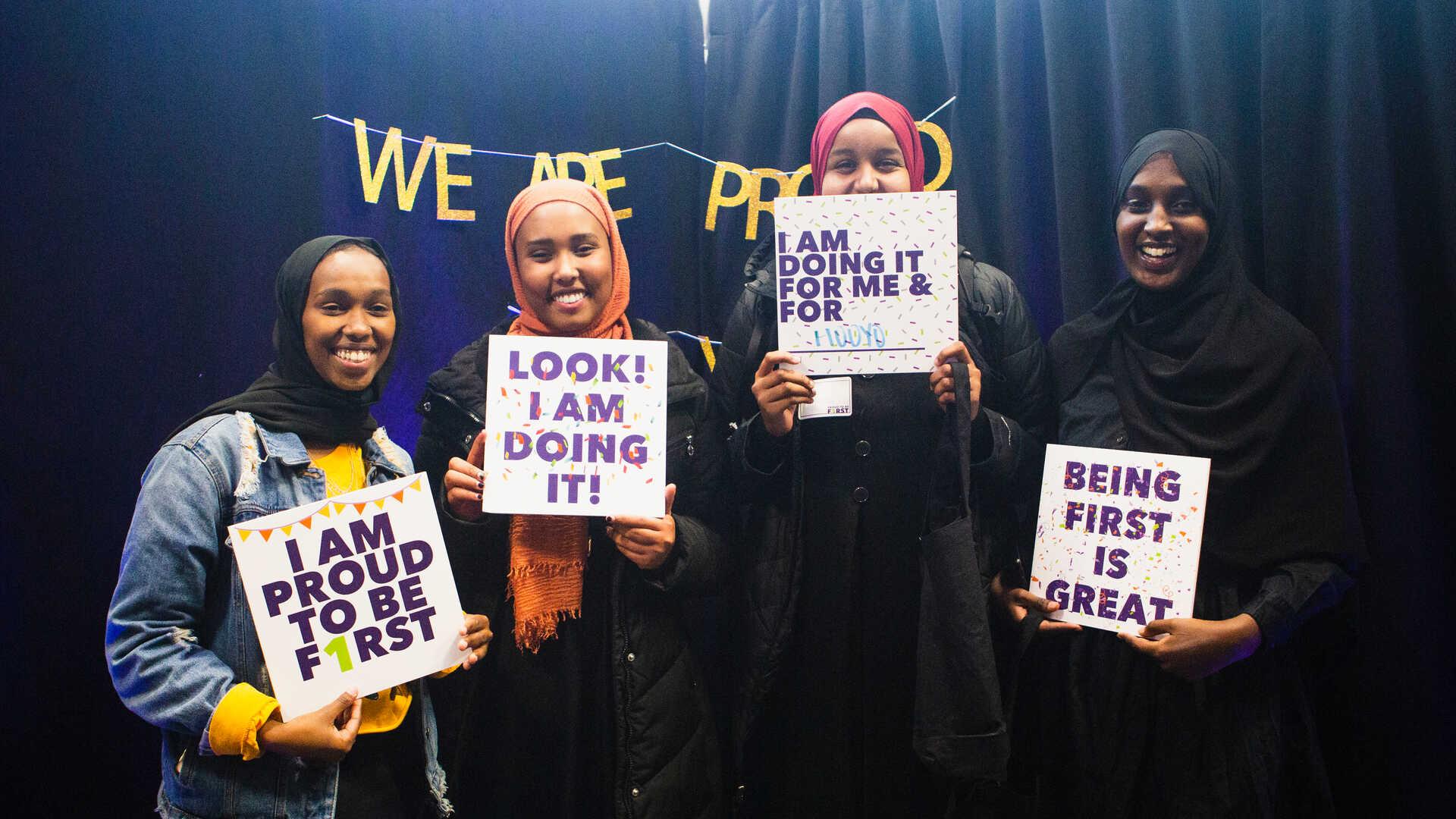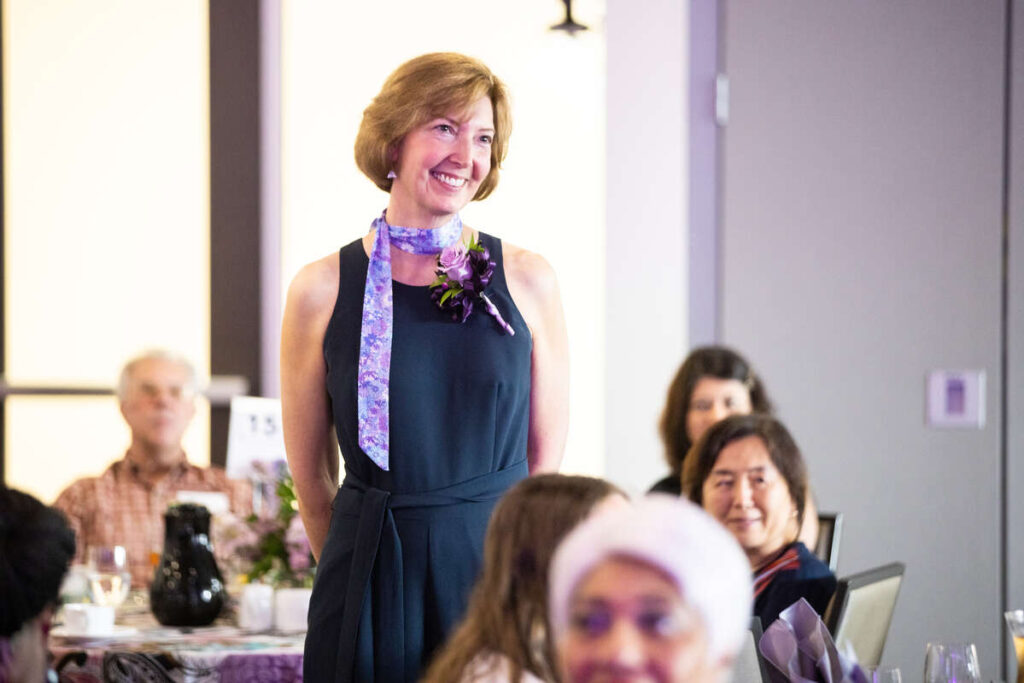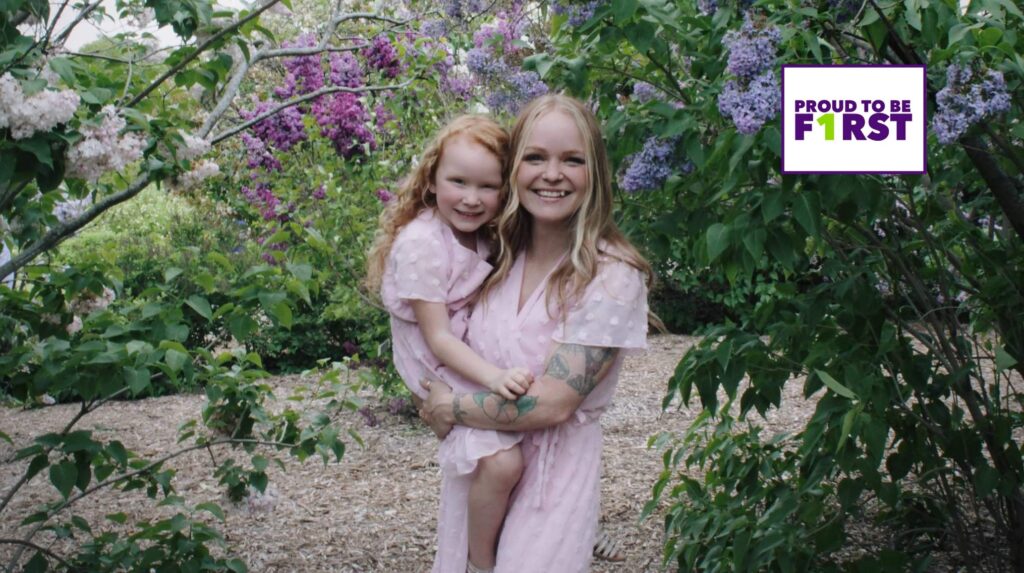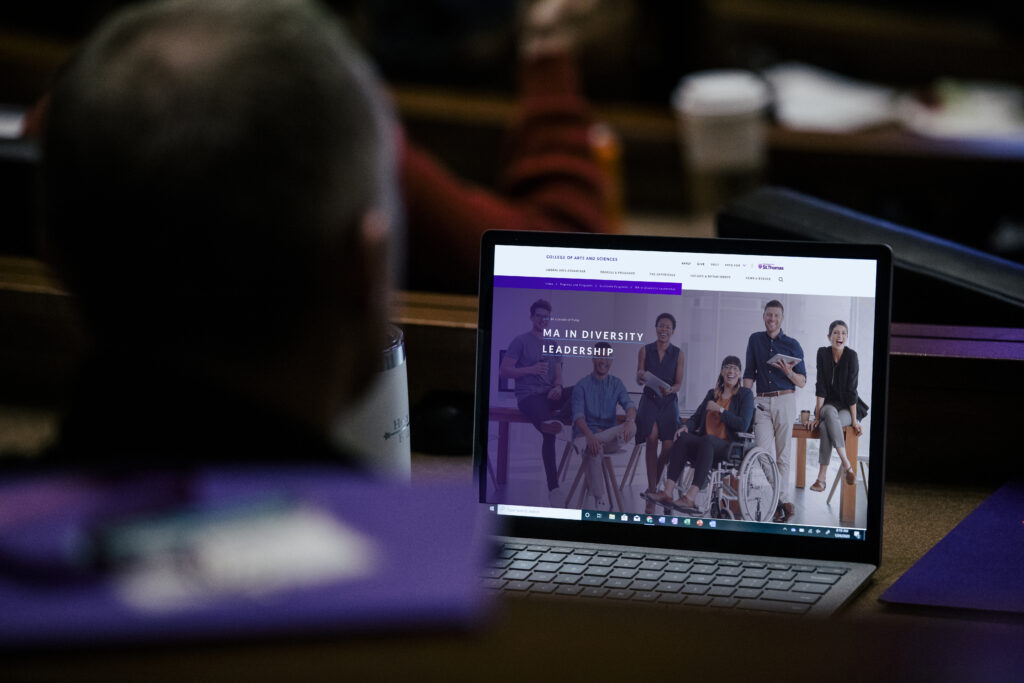Gaofeng Xiong ’23 isn’t afraid of breaking a few barriers. When the Maplewood, Minnesota, native first arrived on the University of St. Thomas campus, she knew attending college would be a barrier-breaking feat for her family. The eldest child of Hmong immigrants, she would become the first in her family to go to college.
“Coming to St. Thomas was a way for me to metaphorically knock down a brick wall,” Xiong said. “I wanted to knock down that brick wall so that my siblings would have an easier path forward, knowing – without question – that they can also go to college.”
Xiong is part of a rapidly changing landscape at the University of St. Thomas, one that is seeing more first-generation students than ever before.

Twenty-six percent of 2023’s first–time, first–year bachelor’s degree-seeking students identify as first-generation – a new high. Steadily climbing in recent years, the first-generation population is defined as any student who did not have a parent graduate with a four-year degree.
Fostering belonging
It’s a trend that has not gone unnoticed on campus. St. Thomas has worked intensely to improve experiences and advance outcomes for first-gen students, earning the designation as a First-gen Forward institution through the Center for First-generation Student Success.
Xiong, a mechanical engineering major, has leaned on that support. She took part in the REAL Program, a select orientation designed to acquaint underrepresented first-year students with campus services and resources. She also participated in the Linkages Mentor Program, where student mentors are matched with new students to serve as a resource, sharing knowledge and success strategies.
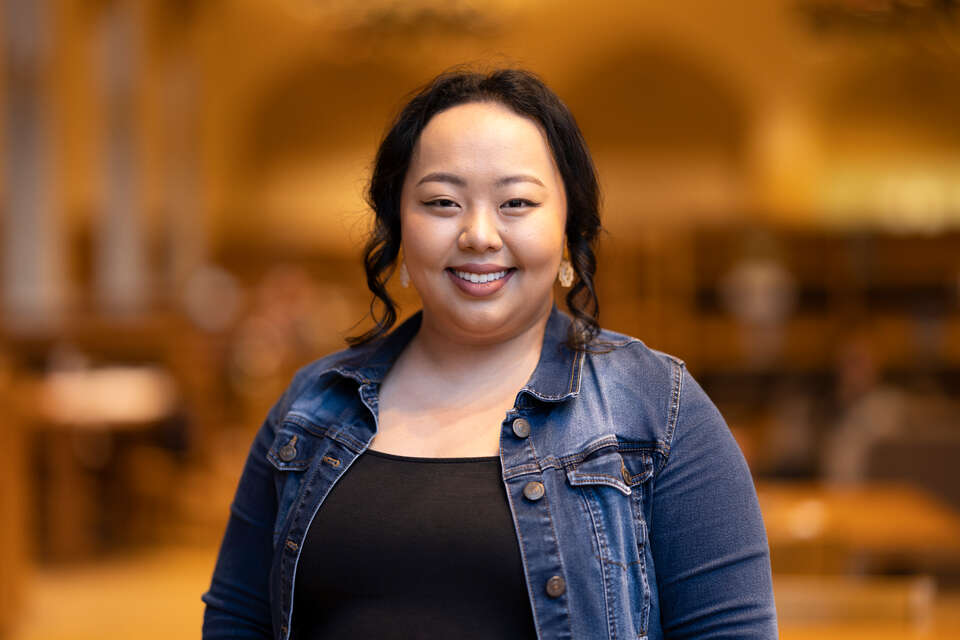
“Those people who extended a hand in support, who said ‘I’m here when you need it,’ that’s what kept me at St. Thomas,” Xiong said.
Just weeks from graduation, Xiong is excited to leverage her engineering degree and enter the medical device field. It’s a career pathway that has traditionally been dominated by white men and hasn’t always offered the most comfortable journey for Xiong, a Hmong woman.
“There were times I experienced imposter syndrome where I would ask, 'Do I really belong in engineering? Do I really belong in these classes?’” Xiong said. “But then I’d spend time with the people who have supported me on campus, and I could reset my mind, and I’d know, yes, I do belong here.”
A changing landscape
For years university leaders have been watching a larger national demographic shift in prospective students, one that sees students coming from more racially diverse backgrounds and experiencing greater economic disparities. Reaching and supporting those students has been key to maintaining the university’s viability.
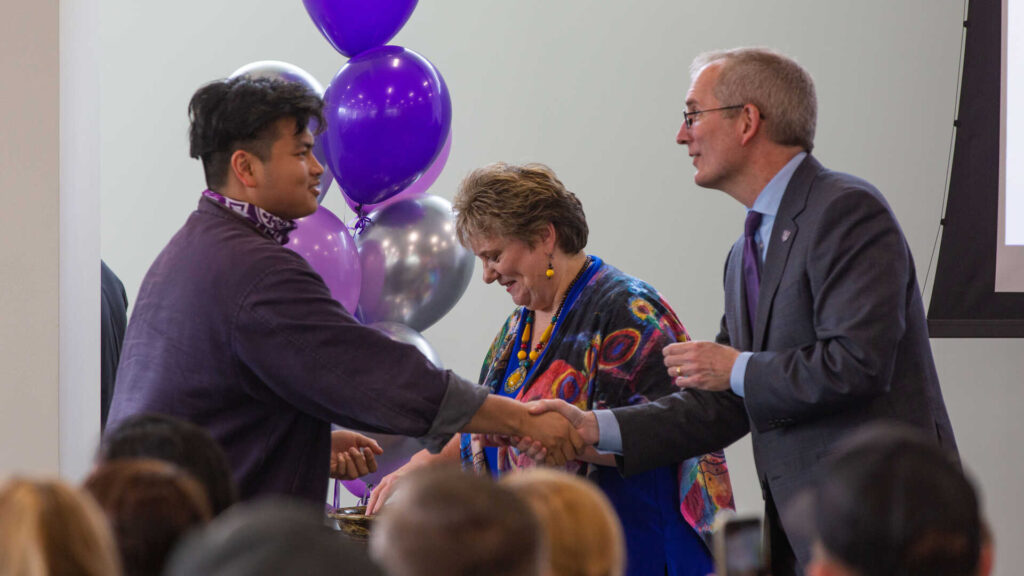
Tonia Jones Peterson, director of retention and student success at St. Thomas, is working to bring greater awareness and robust support to this changing student population.
“This population is now a primary population vital to the university and will be into the future,” Jones Peterson said. “It is our responsibility to understand who our students are, who we are being called to serve, and how we can best support our students while honoring all that they bring to St. Thomas.”
Several divisions throughout the university are committed to supporting the first-gen experience with programs and services. Some opportunities, like the REAL Program, have been around for decades. Other initiatives are much newer and include two sections of the First-Year Experience program designed specifically for first-gen students.
And the work is hardly over. A special task force is studying how the university might better allocate resources to serve underrepresented students, including first-gen, low-income, and those with diverse backgrounds.
“First-generation students bring a richness of identities, strengths, and cultural capital in navigating systems and higher education," Jones Peterson said. “Welcoming first-gen students to campus creates such vibrant discussions and understanding, and gives us all an opportunity to learn more from each other.”
Something truly to be proud of
One of the biggest challenges to creating awareness for first-generation students is simple: They blend in. A first-generation student can be anyone walking across campus. And in some cases, the identity can even surprise the students themselves.

It was a surprise to Maddie Yocom ’26. The business management and strategic communications double major made the realization after happening upon the Proud to Be First booth at orientation.
“I was like, ‘Oh, what is a first-generation student?’ And then I had this sudden realization, ‘Oh wait. That’s me,’” Yocom said.
Proud to Be First offers opportunities for students to engage and interact with fellow first-generation students, faculty and staff. Yocom now serves as the program’s student coordinator and helps facilitate those meaningful connections.
She may not have originally thought of herself as first-generation, but she’s felt the unique challenges through much of her college journey.
“After talking to other first-generation students, I realized this is not normal to feel these emotions. I didn’t have anybody to talk about the stresses of coursework, or the challenges of applying to college, or filling out the FAFSA by myself,” Yocom said. “There are so many things that you don’t realize how helpful it would be to have someone in your corner who’s already gone through it.”
Through her work with Proud to Be First, Yocom has learned to face the hidden curriculum of the college experience alongside new friends and St. Thomas staff turned cheerleaders. And it’s having a measurable impact.
Only 8 percent of first-generation students typically study abroad, but after attending a Proud to Be First session on international programs, Yocom signed right up. She will head overseas to Italy, South Africa, and Japan this spring.
But most of all, Yocom says she’s learned to be proud, wearing the first-generation label with her head held high.
“At first, I was afraid to say I was a first-generation student, because I thought there might be a negative connotation surrounding myself and my parents,” Yocom said. “But I’ve learned that being first-gen is such a cool thing. It’s a huge accomplishment to go to college in general, but to be the first in your family, that’s something to be proud of.”
If you’d like to support first-generation students at the University of St. Thomas, donate directly to the Proud to Be First program for Tommie Give Day. The campaign runs now through Tommie Give Day on Nov. 14.
